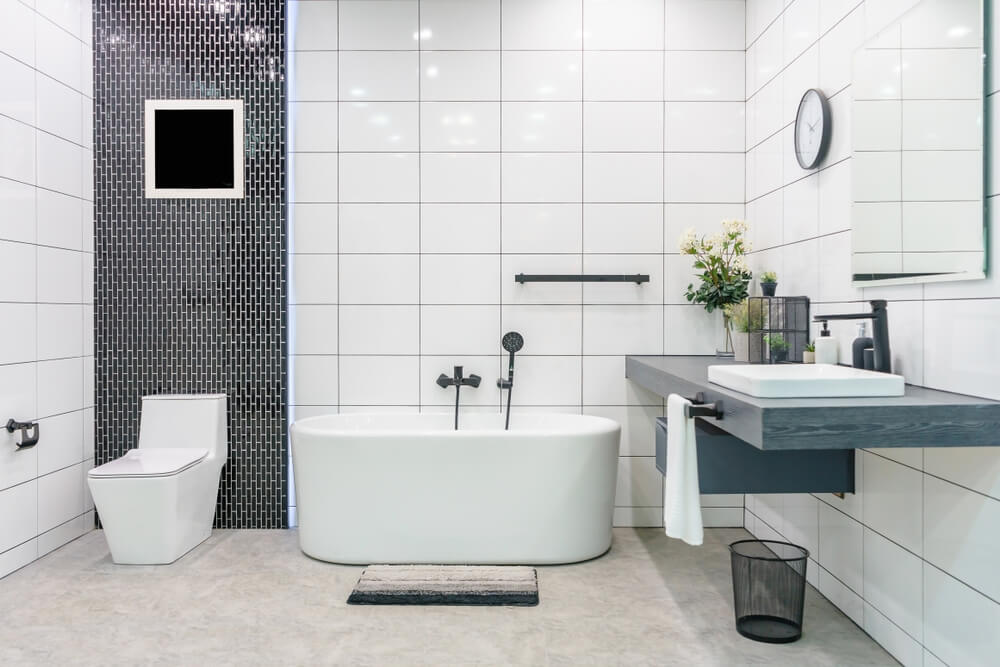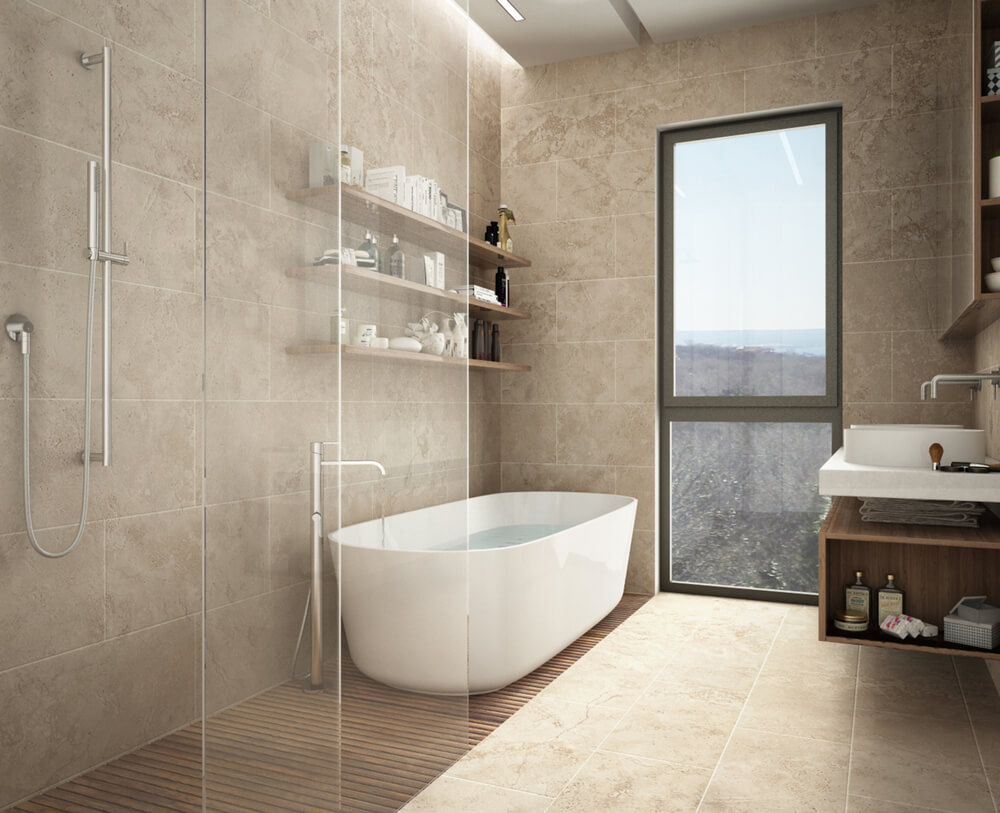With so many shapes, colors, and materials available, it’s no wonder you need a guide for bathroom tile types. There are so many options worth considering that it’s hard knowing which one suits your home best.
Luckily, we’re here to take you through the most popular types of tiles for bathrooms and help you make a decision you’ll be happy with for years to come.
In this article, we’ll discuss the most critical factors for choosing the suitable material and compare the most popular types of bathroom tiles and their characteristics.
Keep reading if you’re interested in finding the best option for your home.
If you’re planning a bathroom remodel in Greensboro, NC, contact Triad Flooring and Bath. Our team of experienced professionals will make sure your home gets the best care available.
Bathroom Tile Types and Their Characteristics
Before looking at any of the materials, you should know about one of the crucial factors and its meaning. Vitreousness is the tile’s water-absorbing ability.
For example, terracotta tiles are considered nonvitreous, which means they absorb moisture. That makes them a suitable option only for accent areas.
On the other hand, vitreous types of bathroom tiles work way better in wet places that often get splashed. That means these materials can be used on shower walls or as floor tiles for the bathroom.
The finish of the tiles matters a lot, too. Glazed tiles don’t allow any water to go through, while unglazed aren’t impervious. Of course, slipping shouldn’t be overlooked when choosing floor tiles for the bathroom. That’s why we need a high coefficient of friction when choosing something we plan to step on with wet feet.
Check out the most popular types of tiles for the bathroom and their characteristics before making any permanent decisions.
Ceramic or Porcelain Bathroom Tile

There’s a reason these types of bathroom tiles are so popular. In fact, there are plenty. Most people consider ceramic and porcelain ideal bathroom materials because of their quality, price, and versatility in design.
Porcelain and ceramic tiles are made of clays fried at high temperatures. Glazing makes them vitreous, so humidity isn’t an issue.
These tiles come in plenty of different color patterns, shapes, and sizes, so no matter what kind of design you’re going for – it’s probably available. You can even glaze specific images on top of the tiles and create something unique.
Cleaning and maintenance are almost non-existent, so that’s not something you need to stress about too much. As long as you mop the tiles every once in a while, your bathroom will be clean.
If you’re looking for a tile store in Greensboro, NC, look no further. Triad Flooring and Bath is the perfect destination. Let experts help you find the best solution for your bathroom.
Marble Bathroom Tile
Not many materials leave the impression marble does, even at first sight. This natural stone is created from limestone that has gone through the earth’s crush and heat for millions of years.
Marble is known to represent sophistication and the higher class. It’s quite a traditional material, and we could’ve seen it throughout history.
Today, it’s available in many sizes and as highly polished tiles perfect for the bathroom. It can be patterned and often veined, adding appeal to any room.
However, these types of tiles for the bathroom need to be resealed regularly. The resealing process prevents etching and staining. And when it comes to maintenance, as long as you use non-acidic cleaners, the tiles will stay pristine.
Cement Bathroom Tile
Cement bathroom tiles are there for the long run. Despite being nonvitreous, these tiles have excellent durability and will last a long time.
You can choose whether you want something that looks rough-hewn or tiles with a smooth finish. The options aren’t limited since you can find plenty of colorful patterns to decorate this type of tile. In fact, if your goal is to leave a statement on the walls, cement might be the best idea.
When it comes to cleaning – we suggest using the same products as you would for natural stone. Non-acidic cleaners will do just fine with cement bathroom tiles.
Decorative Bathroom Tile
The name says it all. Decorative tiles are there to bring the details, make certain areas pop, and leave an impression on anyone who steps inside your bathroom.
You can use these when creating a mural or a mosaic to get the most out of them artistically. Or, you can create more attractive borders and other specific parts of your bathroom walls and floors. The options are pretty much unlimited; these types of tiles come with spots, stripes, feathers, leaves, and many other decorations.
The material will determine the cleaning and the finish of the tiles you use, so make sure you understand which products are suggested for your specific tile choice.
Glass Bathroom Tile
If you want an elegant, reflective surface to incorporate into your bathroom design, glass tiles might be the answer. They come in various corols and custom hues, so you’re not limited to anything specific.
This option is perfect for mosaics or specific areas you wish to draw attention towards. They are breakable, though, so we advise you not to use them as floor tiles for the bathroom. Instead, let your walls be the center of attention.
You can forget about staining and liquid damage. This impervious tile won’t have a problem with water. However, you will have to scrub the grout lines every once in a while. These tiles come in smaller formats, which is important if you wish to keep your bathroom pristine.
Granite Bathroom Tile
Natural stone is always a valuable option to have. Since it’s harder than the competition, granite is perfect for countertops and floors. It will look luxurious and stay like that for years to come.
Your only job is to use a pH-neutral mild detergent that won’t create streaks and discoloration. With that, clean granite tiles will stay that way.
Limestone Bathroom Tile

These honed-surface tiles are perfect for those who wish to have a non-white bathroom. If beige and brown hues are more your cup of tea, we suggest using limestone over any other natural stone.
As you may assume, limestone is ideal for flooring and countertops. However, you should reseal the surface every two years.
Acid-based products aren’t recommended, and sticking to cleaners designed for natural stone maintenance is the right way to go.
Contact Triad Flooring and Bath
All the research in the world won’t help your bathroom if you don’t have high-quality workers performing the installations. An experienced team is what makes the difference between a job well done and a result you aren’t satisfied with in the future.
Avoid having to redo the job and hire pros who know what they’re doing from the get-go. Contact the Triad Flooring and Bath team and let our experts give you a hand with your next bathroom remodel.


